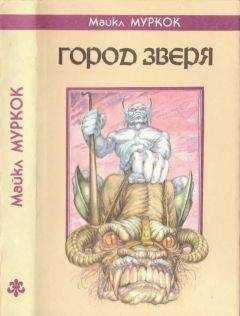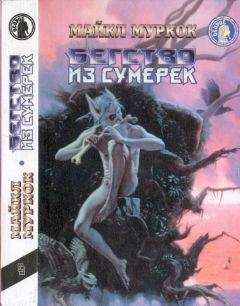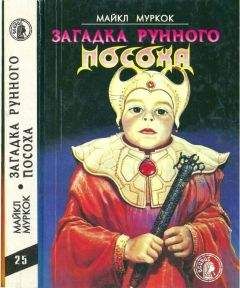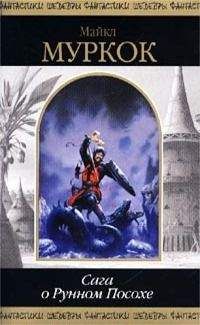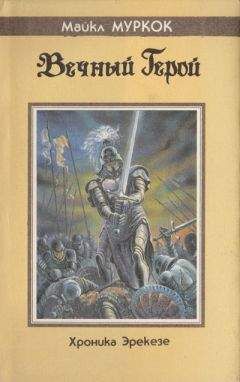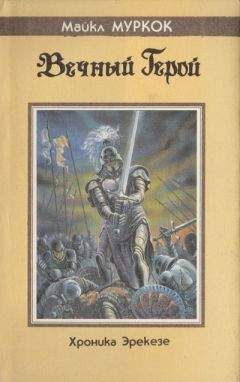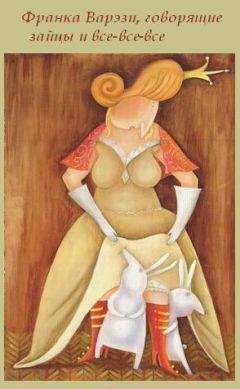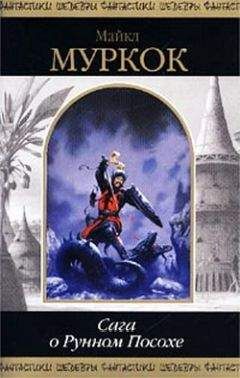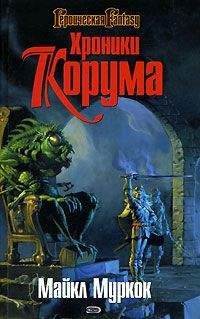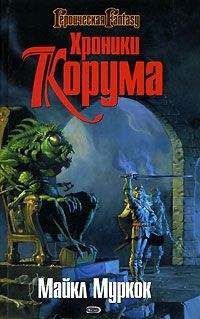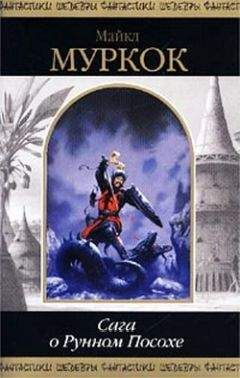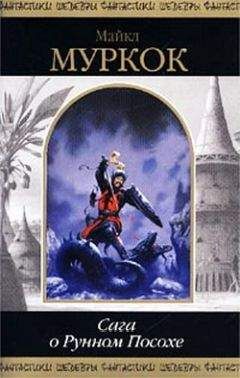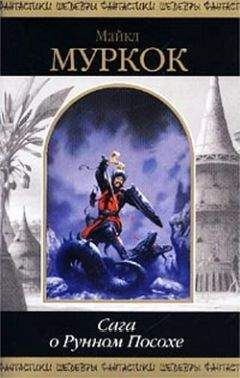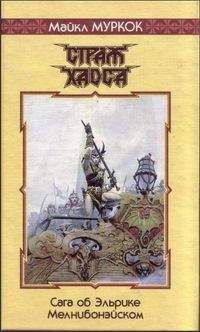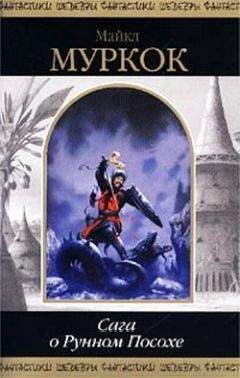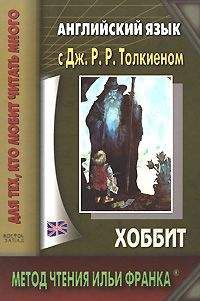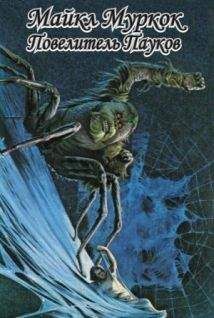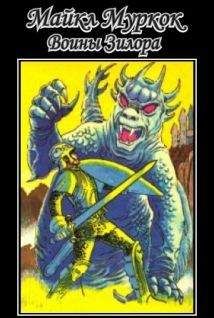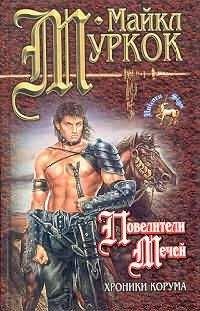Майкл Муркок - Английский язык с М. Муркоком
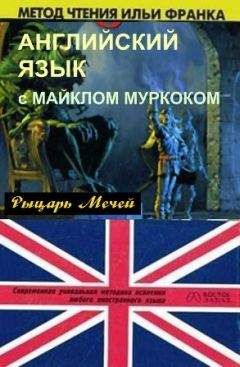
Скачивание начинается... Если скачивание не началось автоматически, пожалуйста нажмите на эту ссылку.
Жалоба
Напишите нам, и мы в срочном порядке примем меры.
Описание книги "Английский язык с М. Муркоком"
Описание и краткое содержание "Английский язык с М. Муркоком" читать бесплатно онлайн.
В книге предлагается произведение "Рыцарь Мечей" Майкла Муркока, адаптированные (без упрощения текста оригинала) по методу Ильи Франка. Уникальность метода заключается в том, что запоминание слов и выражений происходит за счет их повторяемости, без заучивания и необходимости использовать словарь. Пособие способствует эффективному освоению языка, может служить дополнением к учебной программе. Предназначено для студентов, для изучающих английский язык самостоятельно, а также для всех интересующихся английской культурой.
Метод чтения Ильи Франка
dodged [dɔʤd] weapon [ˈwepən] defenceless [dɪˈfenslɪs] strength [streŋƟ]
Corum swung his axe.
Again Glandyth dodged the blow.
Again his axe came down.
And this time Corum's weapon was struck from his hand and he stood defenceless before the grinning Mabden.
`Bet it is my fate to slay Shefanhow! He twisted his mouth in a snarling grin.
Corum flung himself at Glandyth, trying to wrest the axe from him. But Corum had spent the last of his strength. He was too weak.
Glandyth cried out to his men.
`By the Dog, lads (/клянусь/ Псом, парни), get this demon off me (уберите от меня этого демона; to get off — сойти, слезть; отбывать, убегать). Do not slay him (не убивайте его). We'll take our time with him (мы позабавимся с ним; to take time — занимать время, требовать времени). After all, he is the last Vadhagh we shall ever have the chance to sport with (все-таки он — последний вадаг, с которым у нас когда-либо будет возможность поразвлечься; after all — в конце концов, после всего; to sport — играть, веселиться, развлекаться)!
Corum heard them laugh (Корум слышал, как они смеялись) and he struck out at them as they seized him (он отбивался от них, когда они схватили его; to strike out at — атаковать, наброситься). He was shouting as a man shouts in a fever (кричал, как кричат в лихорадке) and he could not hear the words (и не мог слышать = не слышал /своих/ слов).
Then one Mabden plucked off his silver helm (затем один мабден сорвал с его /головы/ серебряный шлем; to pluck — срывать, дергать; силой утащить) and another hit him on the back of the head with a sword pommel (а другой ударил его по затылку рукоятью меча; pommel — головка /эфеса шпаги/; лука /седла/) and Corum's body went suddenly limp (тело Корума сразу обмякло; suddenly — вдруг, неожиданно; limp — мягкий; слабый, безвольный) and sank down into welcome darkness (и /он/ погрузился в долгожданную тьму; to sink down — опускаться, падать; тонуть; welcome — желанный, долгожданный; приятный).
seized [si:zd] fever [ˈfi:və] pommel [ˈpʌm (ə) l]
`By the Dog, lads, get this demon off me. Do not slay him. We'll take our time with him. After all, he is the last Vadhagh we shall ever have the chance to sport with!
Corum heard them laugh and he struck out at them as they seized him. He was shouting as a man shouts in a fever and he could not hear the words.
Then one Mabden plucked off his silver helm and another hit him on the back of the head with a sword pommel and Corum's body went suddenly limp and sank down into welcome darkness.
CHAPTER SIX (глава шестая)
The Maiming of Corum (пытка Корума)
to maim — калечить, уродовать
The sun had risen and set twice (солнце взошло и село дважды; to rise) before Corum awoke to find himself trussed in chains (прежде чем Корум очнулся, чтобы обнаружить = и обнаружил, что связан цепями; to awake — просыпаться, очнуться от сна; to truss — увязывать в пуки; связывать, скручивать /руки и т. д. /) in the back of a Mabden waggon (/и лежит/ в задней части мабденской повозки). He tried to raise his head and see through the gap in the awning (он попытался поднять голову и посмотреть через щель в навесе; gap — брешь, пролом; щель, промежуток), but he saw nothing, save that it was daytime (но не увидел ничего, кроме того, что был день; daytime — день, дневное время).
Why had they not killed him, he wondered (интересно, почему они не убили его; to wonder — удивляться, интересоваться). And then he shuddered as he understood that they were waiting for him to awake (и затем он вздрогнул, поняв, что они ждут, пока он проснется; to understand) so that they could make his death both long and painful (/для того/, чтобы сделать его смерть и долгой, и мучительной; both… and — и… и…, как… так и…; painful — болезненный, мучительный).
trussed [trʌst] awning [ˈɔ:nɪŋ] wondered [ˈwʌndəd]
The sun had risen and set twice before Corum awoke to find himself trussed in chains in the back of a Mabden waggon. He tried to raise his head and see through the gap in the awning, but he saw nothing, save that it was daytime.
Why had they not killed him, he wondered. And then he shuddered as he understood that they were waiting for him to awake so that they could make his death both long and painful.
Before he had set off on his quest (прежде, /чем/ он отправился в свои поиски = в путешествие), before he had witnessed what had happened to the Vadhagh castles (до того, /как/ он увидел, что произошло с вадагскими замками; to witness — видеть, быть свидетелем), before he had seen the blight that had come to Bro-an-Vadhagh (перед тем, /как/ он увидел беду, что докатилась до Бро-ан-Вадага; blight — все, что разрушает планы, надежды; упадок, деградация), he might have accepted his fate and prepared himself to die as his kinfolk had died (он принял бы свою судьбу и приготовился бы умереть /так/, как его родные /погибли/), but the lessons he had learned remained with him (но уроки, /которые/ он получил, остались с ним). He hated the Mabden (он возненавидел мабденов). He mourned for his relatives (он оплакивал своих родственников). He would be avenged on them if he could (он отомстил бы им /мабденам/, если бы смог). And this meant that he would have to live (и это означало, что он должен был жить = для этого стоило жить; to mean).
accepted [əkˈseptɪd] prepared [prɪˈpeəd] mourned [mɔ:nd] avenged [əˈvenʤd]
Before he had set off on his quest, before he had witnessed what had happened to the Vadhagh castles, before he had seen the blight that had come to Bro-an-Vadhagh, he might have accepted his fate and prepared himself to die as his kinfolk had died, but the lessons he had learned remained with him. He hated the Mabden. He mourned for his relatives. He would be avenged on them if he could. And this meant that he would have to live.
He closed his eyes, conserving his strength (он закрыл глаза, сберегая силы; to conserve — сохранять, сберегать). There was one way to escape the Mabden (был /лишь/ один способ сбежать от мабденов) and that was to ease his body into another plane where they could not see him (переместить тело в другую плоскость, где они не смогут увидеть его; to ease — облегчать /боль/; ослаблять, освобождать). But to do this would demand much energy (но чтобы сделать это = для этого потребовалось бы много энергии; to demand — требовать; нуждаться) and there was little point in doing it (и было бессмысленно делать это; there is little point in — нет смысла, едва ли имеет смысл) while he remained in the waggon (пока он оставался в повозке).
The guttural Mabden voices drifted back to the waggon from time to time (гортанные голоса мабденов доносились до повозки время от времени; to drift — относить ветром, течением; сноситься, плавно перемещаться), but he could not hear what they said (но Корум не мог слышать, что они говорят). He slept (он спал; to sleep).
ease [i:z] demand [dɪˈmɑ:nd] guttural [ˈɡʌtər (ə) l]
He closed his eyes, conserving his strength. There was one way to escape the Mabden and that was to ease his body into another plane where they could not see him. But to do this would demand much energy and there was little point in doing it while he remained in the waggon.
The guttural Mabden voices drifted back to the waggon from time to time, but he could not hear what they said. He slept.
He stirred (он пошевелился). Something cold was striking his face (что-то холодное касалось его лица; to strike — бить, ударять/ся/, поражать; производить действия, связанные с ударами, касаниями и т. д. ). He blinked (он заморгал). It was water (это была вода). He opened his eyes and saw the Mabden standing over him (он открыл глаза и увидел мабдена, стоявшего над ним). He had been removed from the waggon (его вытащили из повозки; to remove — перемещать; снимать, удалять) and was lying on the ground (и /теперь он/ лежал на земле). Cooking fires burned nearby (костры для приготовления пищи горели неподалеку; to cook — готовить, жарить/ся/, варить/ся/). It was night (была ночь; night — ночь; вечер).
`The Shefanhow is with us again, master (шефанхау снова с нами = пришел в себя, хозяин; master — хозяин, господин), called the Mabden who had thrown the water (крикнул мабден, который плеснул водой /Коруму в лицо/; to throw — бросать, метать, кидать). `He is ready for us, I think (думаю, он готов для нас = для развлечения).
removed [rɪˈmu:vd] ground [ɡraund] nearby [ˈnɪəbaɪ]
He stirred. Something cold was striking his face. He blinked. It was water. He opened his eyes and saw the Mabden standing over him. He had been removed from the waggon and was lying on the ground. Cooking fires burned nearby. It was night.
`The Shefanhow is with us again, master, called the Mabden who had thrown the water. `He is ready for us, I think.
Corum winced as he moved his bruised body (Корум поморщился /от боли/, когда двинулся своим израненным/в кровоподтеках телом; to wince — вздрагивать, морщиться /от боли/), trying to stand upright in the chains (пытаясь стоять прямо /закованный/ в цепи). Even if he could escape to another plane (даже если бы он смог уйти в другую плоскость), the chains would come with him (цепи переместились бы с ним). He would be little better off (ему было бы не намного лучше; better off — находящийся в лучшем положении; обеспеченный, состоятельный). Experimentally, he tried to see into the next plane (он попробовал заглянуть в другую плоскость; experimentally — опытным путем, для пробы), but his eyes began to ache and he gave up (но его глаза начали болеть, и он бросил /эту затею/; to give up — оставить, отказаться; бросить /привычку/).
Earl Glandyth-a-Krae appeared now (и вот появился граф Гландит-а-Краэ), pushing his way through his men (проталкиваясь через своих людей; ср.: to force one`s way /through/ — протискиваться, пробираться). His pale eyes regarded Corum triumphantly (его тусклые глаза разглядывали Корума торжествующе; to regard — рассматривать, расценивать; смотреть на). He put a hand to his beard (он положил руку на бороду = пригладил бороду), which had been plaited into several strands (которая была заплетена в несколько косиц; strand — прядь, длинный локон) and strung with rings of stolen gold (и украшена кольцами из украденного золота; to string — завязывать, привязывать, шнуровать; нанизывать /бусы/), and he smiled (и улыбнулся). Almost tenderly (почти нежно), he reached down and pulled Corum upright (он наклонился и потянул = поставил Корума прямо; to reach down — доставать, снимать; тянуться /рукой/ вниз). The chains and the cramped space of the waggon (цепи и тесное пространство повозки; cramped — тесный, стиснутый) had served to cut off the circulation of blood to his legs (способствовали перекрыванию кровообращения в его ноги = привели к тому, что ноги Корума совсем затекли; to serve to — способствовать, помогать; to cut off — обрезать, прерывать; circulation — круговорот, циркуляция). They began to buckle (они начали подгибаться; to buckle — сгибать/ся/, деформироваться).
Подписывайтесь на наши страницы в социальных сетях.
Будьте в курсе последних книжных новинок, комментируйте, обсуждайте. Мы ждём Вас!
Похожие книги на "Английский язык с М. Муркоком"
Книги похожие на "Английский язык с М. Муркоком" читать онлайн или скачать бесплатно полные версии.
Мы рекомендуем Вам зарегистрироваться либо войти на сайт под своим именем.
Отзывы о "Майкл Муркок - Английский язык с М. Муркоком"
Отзывы читателей о книге "Английский язык с М. Муркоком", комментарии и мнения людей о произведении.





